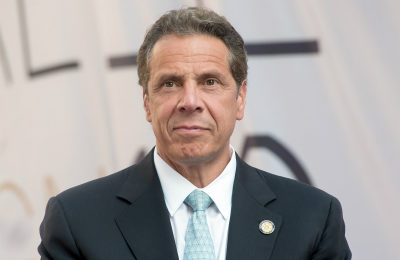 STAFFERS AT the Four Seasons Hotel, where celebrities assume false names to throw off the media and fans, reciprocate awed pleasure when you ask for Itzhak Perlman.
STAFFERS AT the Four Seasons Hotel, where celebrities assume false names to throw off the media and fans, reciprocate awed pleasure when you ask for Itzhak Perlman.
”Of course, Mr. Perlman,” a front clerk beams. “I’ll have someone personally take you to the Elm Room.”
The Intermountain Jewish News has arrived ahead of its noon appointment with the preeminent violinist. Downtown traffic is tricky, and time is limited.
Perlman can give us only 20 minutes.
Within three weeks after JEWISHcolorado first announced that Perlman would headline the inaugural Choices in Concert on Feb. 25, tickets sold out.
Tonight is the night.
”He’s finishing up with another reporter,” the escort explains when we reach our destination. During the wait, questions are tweaked in red ink; camera settings are rechecked; idle chatter diminishes anxiety.
Finally the publicist opens the heavy doors.
Perlman is at the center of the table, ensconced in the scooter he uses to get around. Brief introductions are exchanged. The countdown begins.
Upon learning that he won the coveted 2016 Genesis Prize in Israel, Perlman wrote, ”My first involvement obviously is as a musician, and second, or even first, as a person who has a disability.”
The Israeli-American fell in love with the violin at age four, shortly before polio paralyzed his legs.
While the two realities appear inseparable, music did not become his legs, he corrects — and certainly not his wings.
“That sounds very romantic,” surmises Perlman, who was born on Aug. 31, 1945 in Tel Aviv.
”After I got polio, my parents did not see any reason why I should not do what I wanted to do,” he says.
”I never associated my playing the violin with my disability. My disability was one thing, my playing was another thing. They were not connected.”
Obviously, other people connected them, Perlman admits, especially later, when it was time for me to consider having a serious career as a violinist. “A lot of people felt I might not be able to do this because I walked with crutches.
“But when I was growing up, it was all about how good I was, all about the practicing, and all about the talent.”
Did he realize he possessed an extraordinary gift before a teacher or mentor verified it?
”Let’s put it this way,” he grins. “I was told not to quit. My strength as a young kid was that I had a nice sound. But it wasn’t like, You are very, very good. My parents probably thought I was good; they were parents.
“But it was never really discussed. You just concentrated on the music — and the practicing, which was tough.”
Perlman performed on the Ed Sullivan Show at 13, attended Julliard at 15 and made his Carnegie Hall debut at 18. The rest is a stratospheric ascension that shows no signs of subsiding.
PERLMAN’S LEGENDARY gregariousness makes repeated entrances.
”What do they call me at home? ‘Your highness!’ But I take out the trash.”
”Do I have a wardrobe change scheduled mid-interview? I didn’t think so.”
Music assumes center stage — not merely Perlmans impeccable technique and virtuosity but his pervasive ability to stir the soul.
When he’s on the stage, is he focused on the notes, the conductor, the audience or a place deep inside?
”Where am I? In the concert hall!” he laughs. ”No, I understand what you mean. I am in the music. That’s basically it. When Im performing, I feel what the music tells me. The music guides me.
“I always tell my students the same thing. Sometimes they ask me, ’What do I do now?’ I say well, what do you hear? Music is tied to harmony — and harmony is how you express it.”
Perlman, who has been teaching gifted students for 30 or 40 years, often asks them to read a sentence out loud in order to illustrate musical intonation.
”Say I tell them to read, ’Today I went outside and it was a beautiful day.’ They repeat, ’Today I went outside and it was a beautiful day.’
“But I’m not going to say it like that. I would say, ’Today I went outside and it was a beautiful day.’ When I say beautiful, there’s an inflection. That’s what you do with music. You can’t just listen to harmony and go, That’s nice, I’m done.
“Or you go to a museum and see nice paintings. Then you see the Mona Lisa, and you feel it. You have nice, nice, nice and Oh! You must react to the music. This is a relatively simple way of putting it, but its not so easy to do.
“Questioned about the relationship between music and spirituality,” Perlman hesitates.
”I don’t know if you’d call it spirituality, but music often makes me cry,” he admits.
”If I hear certain things and it’s right, I always find myself in what I call a goose bump situation. That happens to me. Then again, a lot of other stuff makes me cry.
”Take the arias from Puccinis La Boheme,” Perlman says. He tilts his head to the side as if hes listening to them.
“The other day I heard some music and I just lost it. I cant remember what it was or who wrote it. But that’s normal for me.
”And if I lose it when a student is playing, I know I did a good job as a teacher.”
The cup of water next to him is half empty. Perlmans publicist encourages him to drink more, especially at such a high elevation. Otherwise he might get a headache.
”I’ll take some Excedrin,” he assures. ”Excedrin works every time. It always gets rid of headaches, and I’ll tell you why — because of the caffeine.
Does the fiddle maestro drink coffee?
“Never.”
AS A lead-in to a question, the IJN brings up the Boycott, Divestment and Sanctions (BDS) movements strategy to ban artists from coming to Israel. Perlman is confused. ”What? What? Oh that. I thought this was not going to be political.”
Once its explained that the underlying query is whether music can or should transcend politics, he’s delighted.
“Well it does, obviously,” Perlman smiles broadly. ”I always find that music, when it comes to Israel and other countries, is a barometer.
“Every time a country with slightly strained relations with Israel asked me to play, it was the first thing that signaled a thaw.
”This happened in the Eastern Bloc countries when our relationships started warming up. And of course in Moscow.”
Perlman recalls performing Hatikvah, Israel’s national anthem, on a Moscow stage. ”I just lost it,” he says. ”Nobody sang along because they didn’t know it. But it was amazing.”
Although he now appears professionally in Germany, he resisted the unsettling idea for a long time — until Golda Meir uttered a few choice words to him at an Israeli Philharmonic function.
”We were talking about how I would not play in Germany,” Perlman says. “And she told me, ’You have to. As an Israeli musician, you must play in Germany.’
“That’s the real reason I started performing there. It was very difficult in the beginning. But Golda was not exactly a person without sense,” he smiles.
Five minutes, the publicist announces.
WHERE DOES this advocate for the disabled stand on the issue of inclusion in the Jewish community? ”Could you please explain to me what you mean by inclusion?” he asks pointedly. ”It’s such a fancy word and I dont understand it.”
In this case, inclusion refers to welcoming, accommodating and ensuring that disabled individuals feel at home in synagogues and Jewish organizations.
Perlman nods but adds nothing.
Will he offer a message to Jewish communities desirous of turning hope into reality?
”First, there is the danger of patronizing, right?” Perlman answers through an acutely personal lens. ”Well that’s the problem. It’s a very fine line.
“If you have talent, if you are able to work and are good at your job, I don’t care whether you are in a wheelchair or are blind or can’t hear. That’s what people should look at. They should not associate the two together.
“However, inclusion has a lot to do with access,” he adds. ”Because if you’re going to work some place and you cannot get inside, all the inclusion in the world will not help.”
Perlman, who in his youth mastered the art of staccato — a sequence of fast, detached strokes in the same bow direction — jumps effortlessly to the Genesis Prize.
“They talk about it like it’s the Jewish Nobel. But it’s not. You get the money ($1 million), but you have to give it away!” He laughs. ”And this is not as easy as you think, because who do you give it away to?
“My goal is to give it in such a way that every dollar counts and every dollar personally affects somebody.”
Perlman has been contemplating a program that would help disabled individuals who can’t afford to attend concerts or need tangible assistance getting there.
”We’re going to wait for you, take you to the concert and bring you home,” he elucidates. “Is this a huge thing? No, its not a huge thing. But it affects one person, two persons, 10 persons.”
He also wants to ensure the survival of the Yiddish language. ”I’m thinking of things, but so far I have not been bombarded.”
The person coordinating the gifting process warned Perlman that he would be besieged by a slew of self-styled friends.
”So far I haven’t had too many friends,” he shrugs benignly, ”so that’s good.”
Back in the Denver sunlight, shallow breath regains its rhythm. Twenty surreal minutes slowly recede.
My lesson for the day?
Today I went outside and spoke to Itzhak Perlman — and it was beautiful.
Andrea Jacobs may be reached at [email protected].
Copyright © 2016 by the Intermountain Jewish News
















